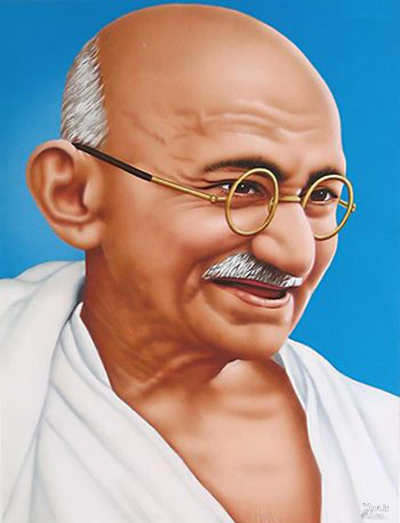A moral act must be our own act; it must spring from our own will. If we act mechanically, there is no moral content in our act. Such action would be moral, if we think it proper to act like a machine and do so. For in doing so, we use our discrimination. We should bear in mind the distinction between acting mechanically and acting intentionally.
It may be a moral of a king to pardon a culprit. But the messenger bearing the order of pardon plays only a mechanical part in the king’s moral act. But if the messenger were to bear the king’s order, considering it to be his duty, his action would be a moral one. How can a man understand morality who does not use his own intelligence and power of thought, but lets himself be swept along like a log of wood by a current?
Sometimes a man defies convention and acts on his own with a view to [doing] absolute good. Such a great hero was Wendell Phillips. Addressing an assembly of people, he once said,” Till you learn to form your own opinions and express them, I do not care much what you think of me.”
Thus when we all care only for what our conscience says, then alone can we be regarded to have stepped on to the moral road. We shall not reach this stage, as long as we do not believe – and experience the belief – that God within us, the God of all, is the ever present witness to all our acts.
It is not enough that an act done by us is in itself good; it should have been done with the moral or otherwise depends upon the intention of the doer. Two men may have done exactly the same thing; but the act of one may be moral, and that of the other contrary.
Take, for instance, a man who out of great pity feeds the poor and another who does the same, but with the motive of winning prestige or with some such selfish end. Though the action is the same, the act of the one is moral and that of the other non-moral.
While thinking of morality, all that we need to see is that the act is good and is done with a good intention. The result of an action is not within our control.
Historians have called Emperor Alexander “great”. Wherever he went [in the course of his conquests,] he took the Greek language and Greek culture, arts and manners, and today we enjoy the benefits of Greek civilization. But the intention of Alexander behind all this was only conquest and renown. Who can therefore say that his actions were moral? It was all right that he was termed “great”, but moral he cannot be called.
There is no morality whatever in my act, if I rise early out of the fear that, if I am late for my office, I may lose my situation. Similarly there is no morality in my living a simple and unpretentious life if I have not the means to live otherwise. But plain, simple living would be moral if, though wealthy, I think of all the want and misery in the world about me – and feel that I ought to live a plain, simple life and not one of ease and luxury.
Excerpted from the Chapter ‘What is Moral action?’ in the book ‘Ethical Religion’. The 71st death anniversary of Mahatma Gandhi will be observed on January 30.







